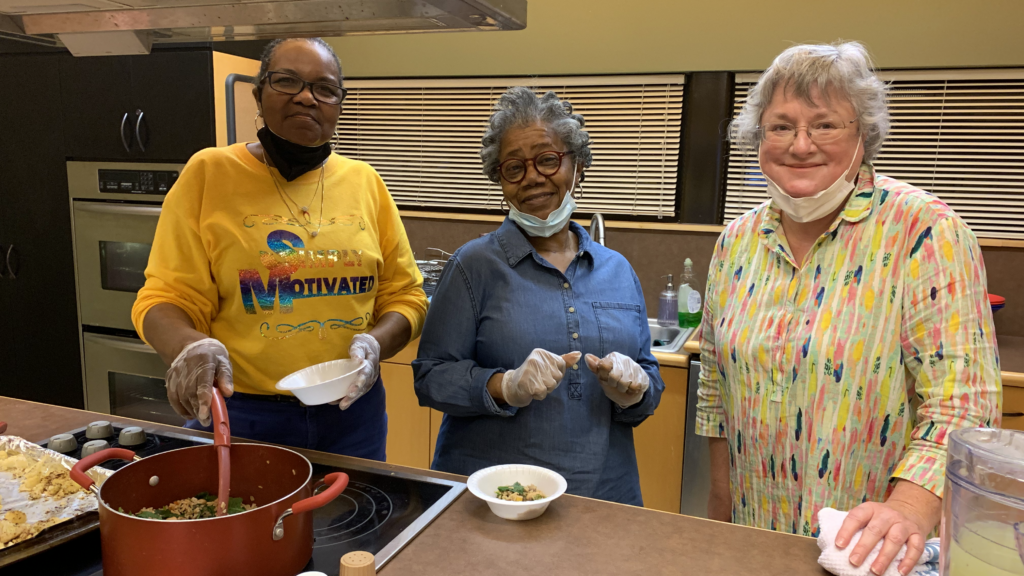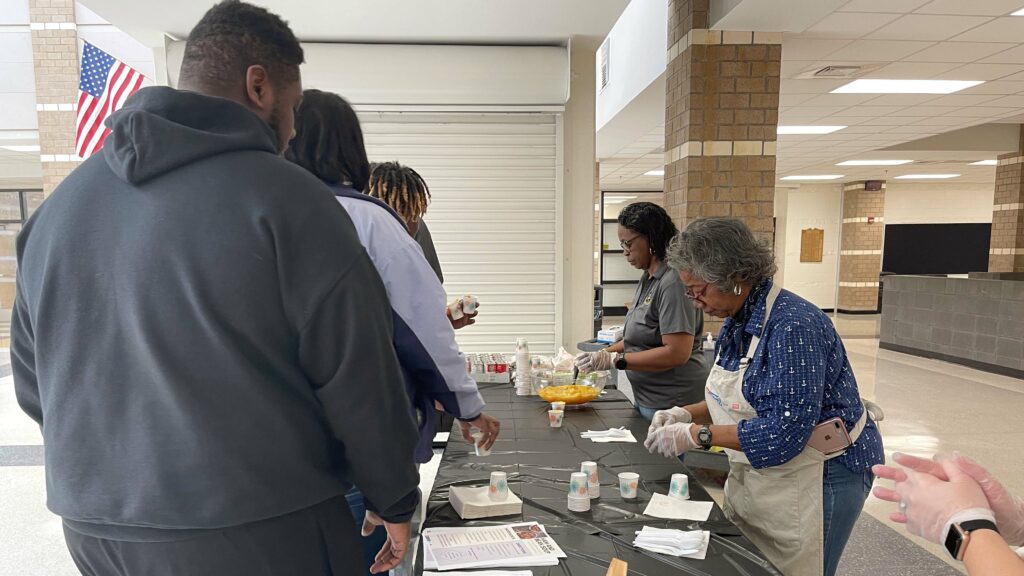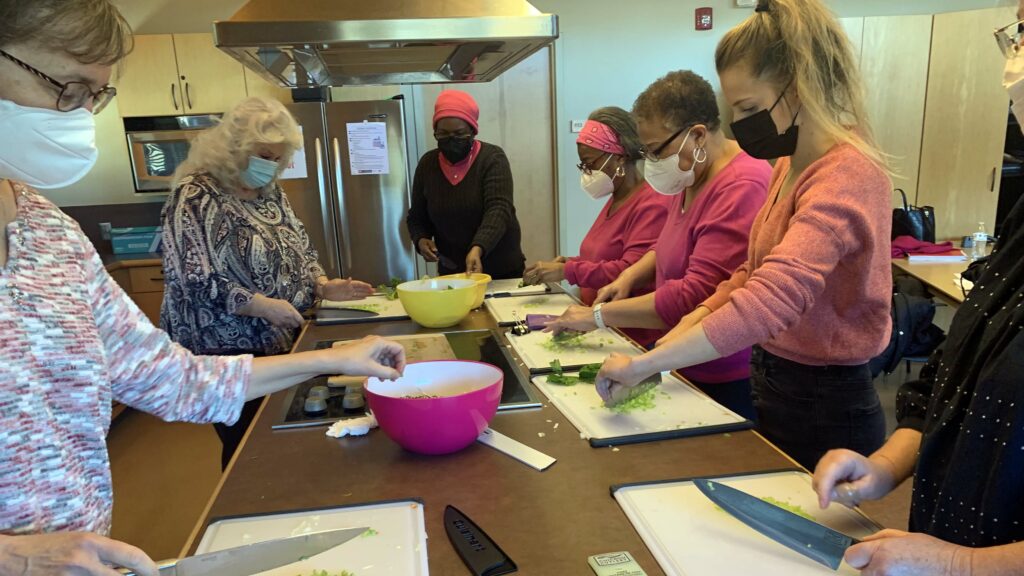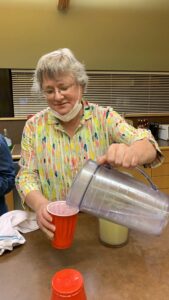Improving Health Outcomes
go.ncsu.edu/readext?859858
en Español / em Português
El inglés es el idioma de control de esta página. En la medida en que haya algún conflicto entre la traducción al inglés y la traducción, el inglés prevalece.
Al hacer clic en el enlace de traducción se activa un servicio de traducción gratuito para convertir la página al español. Al igual que con cualquier traducción por Internet, la conversión no es sensible al contexto y puede que no traduzca el texto en su significado original. NC State Extension no garantiza la exactitud del texto traducido. Por favor, tenga en cuenta que algunas aplicaciones y/o servicios pueden no funcionar como se espera cuando se traducen.
Português
Inglês é o idioma de controle desta página. Na medida que haja algum conflito entre o texto original em Inglês e a tradução, o Inglês prevalece.
Ao clicar no link de tradução, um serviço gratuito de tradução será ativado para converter a página para o Português. Como em qualquer tradução pela internet, a conversão não é sensivel ao contexto e pode não ocorrer a tradução para o significado orginal. O serviço de Extensão da Carolina do Norte (NC State Extension) não garante a exatidão do texto traduzido. Por favor, observe que algumas funções ou serviços podem não funcionar como esperado após a tradução.
English
English is the controlling language of this page. To the extent there is any conflict between the English text and the translation, English controls.
Clicking on the translation link activates a free translation service to convert the page to Spanish. As with any Internet translation, the conversion is not context-sensitive and may not translate the text to its original meaning. NC State Extension does not guarantee the accuracy of the translated text. Please note that some applications and/or services may not function as expected when translated.
Collapse ▲Karen Wilson was desperate. She is a four-time cancer survivor, but her many and myriad treatments caused her body chemistry to change.
“I struggled with food intake over the last 10 years as I weaved between different treatments, medications and surgeries,” she said. “My gastrointestinal tract was destroyed. It created blood sugar. I became diabetic. The thing you have to change is your intake of food, the same thing you’ve spent 10 years worrying about. I had a hard time getting my numbers down. I went into sepsis four times.”
Wilson was discouraged, but you don’t beat cancer four times without a fighting spirit. She was determined to overcome this health challenge too.
“I didn’t survive cancer to lose a battle to diabetes,” she said.
She sought the advice of doctors and specialists, but nothing helped. Then in 2020 she did an online search for healthy eating lifestyles and found a nutrition class taught by NC State Extension agents Sydney Knowles and Cassidy Hall.

Theresa Bowles, Emma Carr and Karen Wilson participate in Extension Master Food Volunteer training in Sampson County.
“I thought, why not?” Wilson said. “I’m at home, during a pandemic.”
Med Instead of Meds is a six-session series taught by FCS agents in Extension centers throughout North Carolina. Extension recommends the Mediterranean Diet as a research-based eating style to promote health and decrease the risk of many chronic diseases, including certain types of cancers, Alzheimer’s disease, type 2 diabetes, high blood pressure and cardiovascular disease.
“It is included in the Dietary Guidelines for Americans as a healthy diet and has the most research to back it up,” Knowles said. “The best diet is one that includes all the food groups, incorporates more fruits and veggies, keeps portions in mind, and includes other components of health such as moving more throughout the day.”
Participants learn to read nutrition labels, the importance of eating fruits and vegetables, select the best carbohydrate sources, and how to make the best protein and fat choices.“It’s a change in your eating lifestyle,” Wilson said. “You learn how to use the grocery store and farmers markets, and to eat what comes from the earth, the bushes, the animals. This is a rounded diet. Your body does need carbs. It does need fat. The body knows what to do if you give it what is natural, and it thanks you for it.”
Wilson began incorporating the information she was receiving into her eating habits, and started seeing results almost immediately.
“I cooked four cups of vegetables. That was the start,” she said. “I started adding food to my diet. My immune system went up and my blood sugar went down. I started as a 14. I dropped down to 11, then eight. They say 6.5 is ideal. My next test is due in [the spring], and I hope to be there by then.”
She took another class on healthy eating, and one on food safety. She began to incorporate exercise into her daily routine. She learned about meal planning, USDA MyPlate guidelines, and innovative cooking tools like an Instant Pot.
Her health improvement has been so measurable and dramatic that Wilson has become a disciple and evangelist of Extension nutrition programs in Sampson and Johnston counties, always ready to pass on the wisdom and common sense advice she has received.
“Food is the one thing we can control,” she said. “It’s the greatest gift we can give to ourselves, that every bite we put in our mouth is to the best benefit, so we can take care of ourselves so we can care for others.”
To help reach others with nutrition advice, Wilson is training with Knowles and Hall to become a certified Extension Master Food Volunteer.
The Extension Master Food Volunteer (EMFV) program is designed to engage residents in food and nutrition programming in their community. FCS agents train volunteers to expand the reach of N.C. Cooperative Extension.
“I want to be a student and a helper,” Wilson said. “It’s a passion because of what I’ve seen it do to my body. I want everyone to hear this basic information that NC State provides and clarifies.”
She also wants to get the word out about NC State Extension programs.
“I didn’t know anything about Extension,” she said. “I didn’t know it existed, or what it did. This is the best kept secret in North Carolina. Now I know what Extension is — they teach, and they do it.”
As part of her EMFV certification, Wilson is helping with a Cook Smart, Eat Smart course at the Sampson County Center in Clinton. She is joined by Theresa Bowles and Emma Carr, who became involved with Extension through the Stanford-Duplin Extension & Community Association (ECA).
ECA is an Extension program active in 57 counties. Members can socialize while participating in community service projects, making arts and crafts, and taking educational trips.
“We have a group of ladies that come together each Monday and Tuesday, making throws for people in the nursing home,” Carr said. “We made masks for farmers during the pandemic.”
Carr enjoys the social activities at the Stanford-Duplin ECA, but it was a nutrition class taught by Knowles that motivated her to get more involved.
“I learned to read the labels on the back of cans, to make sure you’re not getting all that added sugar,” she said. “I’ve learned to prepare foods a little healthier, using olive oil instead of the other oils, and the temperature you are supposed to cook your meat.”
She is also working to earn her EMFV certification so she can pass on the knowledge.
“I just like helping people and being around people and meeting new people,” she said. “That’s always how you get your blessings, by being a blessing to somebody else.”
Bowles joined the Stanford-Duplin ECA after moving back to her hometown after retirement.
“One of my church members said she was going to a meeting,” she said. “I had just moved back and didn’t want to just sit at home. I said, ‘Can I go?’ Once I got in there and saw all the things you can do for other people, I said this is for me.”
She became president in 2011. She just turned 75 and plans to give up the office next year, although she will remain active in the club. She also serves as the Southeast ECA district secretary.
“We feel we are impacting the community, people of our age,” she said. “I like being there for them.”
That’s why she too wanted to pass on nutrition information received through Extension.
“We can pass it along to people in our circle,” she said. “A lot of us are on some kind of medication. We love to pass it on to them, what we’ve learned, what’s working for us.”

As part of Sampson County’s nutrition outreach, staff and volunteers offer taste tests to persuade high school students to try new food.
Wilson, Carr and Bowles are in the second phase of the Master Food Volunteer training, which requires them to shadow an agent for 30 hours over the course of a year. When that is complete, they are required to participate in a minimum of 20 hours of volunteer work per year.
“When Sydney came to us and said what it was about, I said ‘Oh yes,’ because there was a lot more I needed to know,” Bowles said. “I like the challenge. I feel like I’m getting something that I can pass on. I can’t wait until we graduate and I can do a food demonstration myself!”
Knowles smiles when she hears such enthusiasm radiating from her volunteers. She became an Extension agent to make a difference in her community, and it’s gratifying to see results — in people motivated to help get the word out, and in someone like Karen Wilson whose life has been transformed.
“We don’t always get that kind of feedback,” Knowles said. “When you have that one person who tells you all your programs have done for them, you’re like ‘OK! Our work in Extension is making a difference!’”



